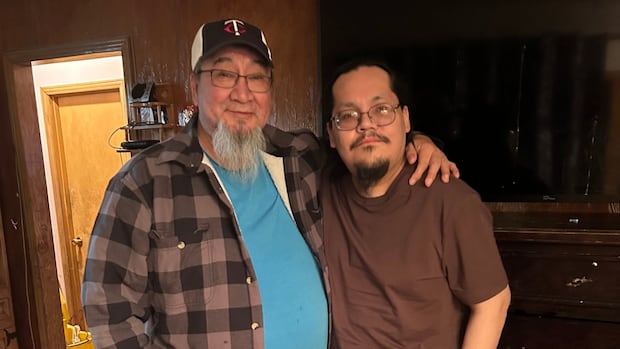Alberta school leaders and groups that deliver school sex education presentations are preparing for new rules taking effect this fall that require the government to first vet all information.
The changes stem from a bill passed last year that the government describes as giving parents and guardians more control and information about what students are learning in school.
New guides and forms posted last month on the provincial government’s website show that groups that offer presentations to students primarily and explicitly on human sexuality, sexual orientation or gender identity (SOGI) must have both their organization and their presentations first vetted and approved by Alberta Education.
Schools must also submit any related resource, such as literature, videos or digital tools, to the government for approval before teachers can use them in classrooms.
Exempt from the process is any sexual health information, or resource dealing primarily with SOGI, that is destined for a religion class.
In a statement last week, Education Minister Demetrios Nicolaides said those classes are exempt because Albertans have a constitutionally protected right to religious education.
Advocates for 2SLGBTQ+ people say the province shouldn’t be scrutinizing and gatekeeping information about sexual orientation and gender identity.
“It’s textbook discrimination,” said Bennett Jensen, director of legal for Egale, an organization that plans to challenge the legislation in court. “[The bill] sends the message to the population that the government thinks that there’s something wrong with queer and trans people.”
Presenter groups will also need to re-apply for approval every three years. Schools must submit a resource for re-approval every time a new version is released, according to the minister.
The minister says the government is screening to ensure resources and presenters align with the curriculum and are age-appropriate.
Nicolaides said he knows that getting groups and resources approved in a timely manner is important for educators.
“Since it’s the first time that we’re doing it at the beginning there, it will be a little bit more busy and hectic, but then it’ll slow down as we get into the next few months,” Nicolaides said of the review process in an interview last month.
The documents say the province will aim to review applications and make a decision within 90 days and starting in August, the government will post a list of approved presenter groups and resources online.
Last year’s Education Amendment Act will also require parents and guardians to opt students into any sexual health education or lessons discussing SOGI issues. The change from the previous opt-out system will make Alberta the first province where students won’t participate in sex ed unless parents want them to.
The guidance documents say schools must give parents at least 30 calendar days’ notice of the lessons in question and “must provide parents with the option of full or partial consent.”
Presenters and resources to be used by extracurricular school clubs, including gay-straight alliances, will also need government vetting. However, students don’t need parents to opt them into participation in those clubs, Nicolaides’s statement said.
Uncertainty for presenting groups
Calgary Communities Against Sexual Abuse has offered sexual violence education presentations in schools for more than 40 years. Last year, their educators gave 502 presentations to about 6,700 people.
CEO Danielle Aubry says depending on age, presentations cover personal space, listening to gut feelings, telling adults about inappropriate touching, and sexual assault. She said it should not be considered sex ed.
The minister said in a statement that sexual assault centres and their material will need government vetting.
Aubry worries the province will prevent educators from using accurate names for body parts — which police have urged them to teach to help catch perpetrators.
She said the opt-in choice could also mean predators can keep their children out of the education sessions.
On the plus side, presenters won’t need to be vetted by multiple school jurisdictions, president and CEO at the Centre for Sexuality in Calgary Pam Krause said in an interview.
The organization has been offering sexual health education in classrooms for 50 years that aligns with provincial health curriculum and is age-appropriate, Krause said.
“We don’t have any concerns about showing people what we do,” Krause said.
Krause welcomes any steps that would make sexual health education more consistent across Alberta — which she sees as lacking. She is concerned about the timeliness of approvals from a bureaucratic process, though.
Tracking which student is allowed to learn what topics is going to be extra work for for schools, she said and it “defies logic” that students would be allowed to learn part, but not all of the curriculum.
“I’m just really hopeful that through this process we can actually enhance education, not really take away what has been working for years and years,” Krause said.
Parental controls
The Alberta Parents’ Union has previously run a campaign advocating for parents to have access to more information about what children learn in schools.
“We felt that parents were too in the dark,” founder and executive director Jeff Park said in an interview last week.
Park said it was too difficult for families to get information not only about lessons about sexual health and SOGI issues, but how teachers or presenters were addressing racial identity, religion, ethical values or the oil and gas industry.
His members support opt-in sex ed and requiring schools to disclose in advance what will be taught.
Although he’s happy there will be a central list of approved materials to consult, parents’ union members never wanted the government to be the resource gatekeeper, he said.
“We would prefer a lot more detail there and a lot less bureaucratic nightmare on the approval side,” he said.
Park said some parents had concerns about “social values” they didn’t agree with being taught to children alongside sex education.
Critics say rules based on disinformation
Jamie Anderson, a University of Calgary PhD candidate who studies the experiences of trans and queer people in school systems, said misinformation and disinformation are fuelling some worries about what teachers teach, and how they teach it.
The guidelines requiring any mention of SOGI to be connected to at least one learning outcome in the curriculum concerns Anderson, as does parents’ ability to opt children into lessons by topic.
The only overt mention of 2SLGBTQ+ people in the Alberta health curriculum is the expectation that Grade 3 students learn about different family structures, which could include two moms or two dads, he said.

“This paints a picture of a very explicit drive to erase queer and trans experiences and content from the classroom,” he said.
Egale lawyer Jensen said adding administrative barriers for educators to use material mentioning SOGI identities will limit teachers’ abilities to respond to the needs of the students before them.
“You’re saying that there’s something wrong with who they are, such that additional permission is required for their identities to even be discussed,” he said.
In a statement, the minister denied the policies are intended to erase 2SLGBTQ+ people.
“These changes will give greater transparency in communication between school authorities and parents and result in greater consistency for students, parents and teachers,” Nicolaides said in a statement this week.
The new rules are planned to take effect Sept. 1.





